The single factor that may have the greatest impact on a team's fortunes is also usually the area that's subjected to the least scrutiny as we examine clubs in the preseason -- the coaching staff. While the players themselves are the ones deciding the games, the coaching staff are the ones deciding who goes out there, with whom and against whom, in what manpower and game situations, and playing what systems. Looking ahead at the 2015-16 season, it makes sense to evaluate which coaches have had the most experience and success with making those kinds of decisions.
Obviously opinions are diverse when it comes to which coaches and staffs have had the most success. That's where the numbers can come in -- not as a definitive voice, but as another perspective.
In this case, the chart below attempts to quantify each staff's level of coaching experience on the horizontal axis, and the success their teams have enjoyed on the vertical axis. The most skilled and experienced coaching staffs will therefore be in the top right, while those with the shortest lists of credentials and fewest successes are on the bottom left.
This approach isn't foolproof because I had to make some subjective choices when putting these numbers together. For example, experience is the combined number of NHL games as a head coach, plus half credit for experience in the AHL, ECHL, Canadian major junior leagues and NCAA Division I, plus 25 games for each full season as an assistant NHL coach. As for each staff's prior success, that is based on how well their teams performed, in terms of points in the standings relative to the previous season, regressed 35 percent towards the league average. That means a coach must keep good teams good, or improve a bad team by more than they were likely to improve without him, in order to produce a good score.
Once I tallied up these numbers, groupings began to emerge. There were some coaching staffs that had a lot of experience, others that had a lot of success, some that struck a more typical balance of the two, and some staffs that were somewhat lacking in either or both.
In the end, five tiers emerged: the best of the best, highly experienced, typically balanced, green and underachievers. Here is where each of the Eastern Conference coaching staffs fits.
Tier 1: The best of the best
The teams in the top right-hand corner of the chart are those who have placed the collected high levels of both experience and prior success when assembling their coaching staffs. These are the teams that observers should watch the most carefully, and whose expectations should be moved up a notch.

Staff: Dan Bylsma (Head), Terry Murray, Dave Barr, Dan Lambert, Andrew Allen (Goalie)
Adjusted games coached: 2,289
Standings points added: 103
In one summer, Buffalo may have gone from having one of the least accomplished coaching staffs to having one of the best. In particular, new head coach Dan Bylsma brings a Stanley Cup and a Jack Adams award, and has the counsel of one of the best NHL coaches throughout the 1990s, Terry Murray. It's hard to predict what will have the biggest positive impact on Buffalo this season: its new goaltending, its new rookies, its new trade acquisitions or its all-new coaching staff.
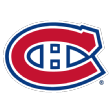
Staff: Michel Therrien (Head), Clement Jodoin, Daniel Lacroix, J.J. Daigneault, Stephane Waite (Goalie)
Adjusted games coached: 2,157
Standings points added: 97
Listing Therrien among the league's elite head coaches in an article last month raised some eyebrows, but his incredible results in the AHL, QMJHL and NHL make it impossible to do otherwise. Unlike some other top coaches, he also has a lot of experience backing him up on his staff -- including in goaltending coach Waite -- which is doubtlessly a key factor in Montreal's trademark over-achievement every season.
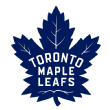
Staff: Mike Babcock (Head), Jim Hiller, D.J. Smith, Andrew Brewer, Steve Briere (Goalie)
Adjusted games coached: 1,923
Standings points added: 79
Despite an unimpressive player roster, Toronto could catch a few teams by surprise this season with its seriously upgraded coaching staff. While everybody is familiar with Babcock's well-publicized success in the NHL, AHL, and WHL, his staff also includes experienced WHL coach Hiller, and one of the OHL's most successful new coaches, D.J. Smith. Oh, and he has one of the greatest NHL bench bosses in modern history, Jacques Lemaire, as his special assignment coach.
Group 2: Highly experienced
There is no substitute for experience. While the success metric is somewhat subjective, there is absolutely no mistaking which coaches have seen it all and done it all from behind the bench. These are the teams that are most likely to produce consistent and predictable results.
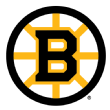
Staff: Claude Julien (Head), Joe Sacco, Doug Jarvis, Doug Houda, Bob Essensa (Goalie)
Adjusted games coached: 2,458
Standings points added: 38
Boston's front-office decisions left many fans and pundits scratching their heads this summer, but having one of the league's best goalies, best shutdown lines, and most experienced coaching staffs virtually guarantees that the Bruins will remain a factor this season. In particular, the highly experienced Julien is backed up by Sacco's 454 games of head coaching experience in the AHL and NHL, and Jarvis' 23 seasons as an NHL assistant.
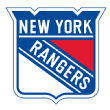
Staff: Alain Vigneault (Head), Scott Arniel, Ulf Samuelsson, Darryl Williams, Benoit Allaire (Goalie)
Adjusted games coached: 2,449
Standings points added: 32
Best known in hockey analytics circles for the rather extreme form of player usage that he developed in Vancouver, Vigneault already had eight seasons as a QMJHL head coach and four years as Ottawa's assistant coach before he even began his first head coaching job with Montreal, way back in the 1997-98 season. Each of his three assistants have seven years of NHL coaching experience, including two as a head coach for Arniel, who also has five seasons of AHL head coaching experience. There's a reason this team keeps making the Conference finals.

Staff: Barry Trotz (Head), Lane Lambert, Todd Reirden, Blaine Forsythe, Mitch Korn (Goalie)
Adjusted games coached: 2,294
Standings points added: 48
In choosing to go with Trotz last summer, Washington went with experience. At the NHL level, Trotz now has 16 years of experience as a head coach, with a further five years as an AHL head coach, which is one more than his assistant, Lambert. All told, Trotz's staff has a combined 17 years as NHL assistant coaches, with another 12 for goalie coach Korn. Once again, mistakes will likely be kept to absolute minimum in the nation's capital this season.
Group 3: Typically balanced
With only so many elite coaches to go around, many teams assembled a cost-effective but unspectacular staff who combine for roughly 20 years of coaching experience combined and who can help generate a few extra points in the standings.
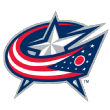
Staff: Todd Richards (Head), Craig Hartsburg, Brad Larsen, Kenny McCudden, Ian Clark (Goalie)
Adjusted games coached: 1,800
Standings points added: 40
While most teams' coaching staffs show a clear division between the experience and success of the head coaches and that of their assistants, Columbus has instead crafted a fascinating balance of equals. Associate coach Hartsburg is actually the most experienced head coach behind the Blue Jackets bench, and Larsen actually has more success as an AHL head coach than Richards. If this model works, more teams may follow suit.
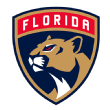
Staff: Gerard Gallant (Head), Mark Morris, Mike Kelly, John Madden, Rob Tallas (Goalie)
Adjusted games coached: 1,694
Standings points added: 30
While we're on the topic of crafting the right balance, the Panthers have the only coaching staff with head coaching experience in the NHL, the AHL and all three Canadian major junior leagues. Head coach Gallant is one of the most successful QMJHL coaches of recent times, and he had seven seasons of experience as an assistant before his respectable debut as an NHL head coach. Add in Morris' considerable experience and success in the AHL and Kelly's experience in the Canadian major junior leagues, and there's very little chance of any players, situations or angles being overlooked in Florida this season.
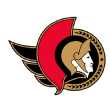
Staff: Dave Cameron (Head), Andre Tourigny, Jason Smith, Rick Wamsley (Goalie)
Adjusted games coached: 1,307
Standings points added: 40
Historically, coaching success in the OHL hasn't translated into NHL success, but the Senators hope to buck the trend with Cameron, one of the most successful OHL coaches of modern times. This season, he'll be backed up by new assistant coach Tourigny, whose success and experience is primarily as a head coach in the QMJHL. This combination could work well on a team with so many young players and prospects. As an interesting side note, Wamsley is the only current NHL goalie coach with experience as a head coach (in the AHL).
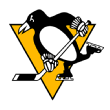
Staff: Mike Johnston (Head), Rick Tocchet, Gary Agnew, Mike Bales (Goalie)
Adjusted games coached: 1,554
Standings points added: 34
There isn't a lot of NHL head coaching experience or success on staff in Pittsburgh, but head coach Johnston enjoyed tremendous success in the WHL, and his assistant coach, Agnew, has considerable experience in both the AHL and the OHL. This summer's addition of special assistant Jacques Martin is a great move that could address any potential gap at the NHL level.
Group 4: Green
While going with a relatively untried coaching staff is obviously a bit of a gamble, some of today's most effective coaches had very little experience when they got their first opportunities -- like Chicago's Joel Quenneville and L.A.'s Darryl Sutter, for example. That's why these coaching staffs should be considered the wild cards, with both significant upsides and the potential to really flop.

Staff: Jeff Blashill (Head), Tony Granato, Chris Chelios, Pat Ferschweiler, Jim Bedard (Goalie)
Adjusted games coached: 631
Standings points added: 15
It will be interesting to see what happens with Detroit, a team that went from one of the league's most accomplished staffs to one of its greenest. New head coach Blashill had solid success in his three AHL seasons, and Granato has 13 seasons of coaching experience in the NHL, including three as a head coach, but that's about it. Will this new staff make any major lineup or system changes?
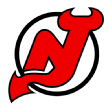
Staff: John Hynes (Head), Geoff Ward, Alain Nasreddine, Chris Terreri (Goalie)
Adjusted games coached: 806
Standings points added: 4
New Jersey is one of only two teams with no NHL head coaching experience on staff whatsoever, and it has the fourth-lowest number of NHL assistant seasons, with a combined seven. However, Hynes, the new head coach, was highly successful in his five campaigns as an AHL bench boss, and his new assistant, Ward, has 11 seasons of experience as a head coach in five leagues and has spent the past seven seasons assisting under Boston's Claude Julien.
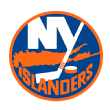
Staff: Jack Capuano (Head), Greg Cronin, Bob Corkum, Matt Bertani, Doug Weight, Mike Dunham (Goalie)
Adjusted games coached: 1,149
Standings points added: 19
Given the combined experience of the head coach, Capuano, and his only particularly experienced assistant, Cronin, the Islanders could arguably qualify for the group above. However, Capuano's and Cronin's results have generally been modest, and last season's poor special teams performance had some fans calling for their heads. This staff might need one more season to get things settled and to move up to the next level.

Staff: Dave Hakstol (Head), Joe Mullen, Gord Murphy, Ian Laperriere, Kim Dillabaugh (Goalie)
Adjusted games coached: 935
Standings points added: 8
Assistant coach Mullen was a midseason head coaching replacement for the AHL's Scranton Wilkes-Barre Penguins in 2005-06. That may not sound like much, but it is the only head coaching experience on this entire staff, at any level, beyond head coach Hakstol's 11 campaigns with the University of North Dakota and four years coaching the United States Hockey League's Sioux City Musketeers. There's just no telling what to expect in Philadelphia this season.
Group 5: Underachievers
The final group is reserved for those coaching staffs who have, for lack of a better term, underachieved in the past. They include individuals who have shown enough promise to warrant another chance, but they also exclude readily available coaches who would be clear upgrades over some members of the staff.
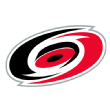
Staff: Bill Peters (Head), Steve Smith, Rod Brind'Amour, David Marcoux (Goalie)
Adjusted games coached: 719
Standings points added: -8
Carolina's entire staff has only eight seasons of head coaching experience at any level, including only one in the NHL, and it hasn't produced great results, outside of Peters' impressive three-season arc with the WHL's Spokane Chiefs and time as an assistant with the Red Wings. Based on that history, it's hard to predict great things for the Hurricanes this season.

Staff: Jon Cooper (Head), Rick Bowness, Brad Lauer, Steve Thomas, Frantz Jean (Goalie)
Adjusted games coached: 1,679
Standings points added: -38
It's a little unfair to include Tampa Bay in this last category -- as the numbers bear out -- but head coach Cooper's tremendous success in both the AHL and the NHL is completely neutralized by associate coach Bowness, who has some of the worst coaching statistics of all time. In my personal judgment, last season's success was no fluke, and Cooper will continue to benefit from Bowness' considerable experience -- but in a positive way. In essence, I think we can ignore this last result.
